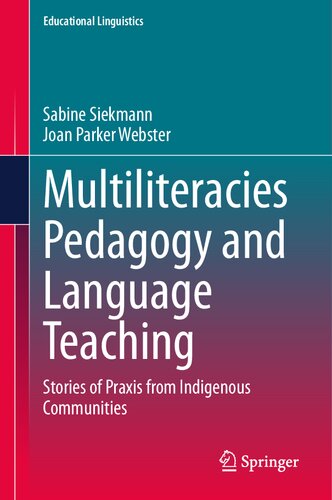

Most ebook files are in PDF format, so you can easily read them using various software such as Foxit Reader or directly on the Google Chrome browser.
Some ebook files are released by publishers in other formats such as .awz, .mobi, .epub, .fb2, etc. You may need to install specific software to read these formats on mobile/PC, such as Calibre.
Please read the tutorial at this link: https://ebookbell.com/faq
We offer FREE conversion to the popular formats you request; however, this may take some time. Therefore, right after payment, please email us, and we will try to provide the service as quickly as possible.
For some exceptional file formats or broken links (if any), please refrain from opening any disputes. Instead, email us first, and we will try to assist within a maximum of 6 hours.
EbookBell Team

4.3
58 reviewsThis volume offers an approach to language and literacy instruction that brings together theoretical concepts of multiliteracies and second language acquisition. This approach is illustrated through examples of innovative teacher-generated action research conducted in Indigenous and English, dual language and immersion classrooms, all situated in the context of language and cultural maintenance and revitalization. These examples of praxis help to bridge the gap between theory and practice in Indigenous language and literacy teaching.
The volume draws on critical theories of praxis and the concept of multiliteracies and multimodalities, with specific attention to the design cycle as a way to conceptualize and engage in praxis through research and pedagogy. The authors trace teacher trajectories relating to (language) teaching and their positionalities in language revitalization and maintenance efforts by using a participatory teacher action research approach. The final chapter brings together Indigenous and western onto-epistemological and methodological perspectives in a conversation among two western and an Indigenous scholar, who have been working together with the teacher-researchers whose stories are presented in this volume.
This volume is of interest to scholars, graduate students, educational practitioners and educational leaders interested in multiliteracies, multimodalities, teacher action research, and Indigenous pedagogies.